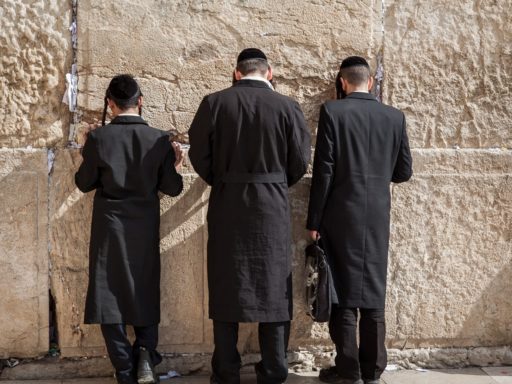Oh my god.
I look up from Cherry Hill. Between the rhododendrons and camellias on the steep hill that drops from the road down to my yard, I catch a glimpse of a woman walking by my house. A neighbor? I can’t see clearly enough to know. Is she walking with someone else? I can’t see. Is she wearing earbuds, talking on the phone? I want to know: what sparked her emphatic oh my god? My God. Imagine that. A neighbor on a cool July morning walking with god, her personal god. Right here in the Hills of Beaverdam, a development where the “neighborhood agreement” prohibits us from displaying political signs. But “holiday decorations,” that is, Christmas lights and wreaths at the entrance to the neighborhood, are welcome.
In the summer, Jona Frank, author of Cherry Hill: A Childhood Reimagined, swam at Cherry Valley Swim Club in Cherry Hill, New Jersey. We belonged to Kingston Estates Swim Club, a few miles south of Cherry Valley. When I was in junior high, we moved from Kingston Estates to Cherry Valley, but we didn’t join its swim club. Still, I knew it from bicycling and driving past it often. I was even invited to swim there as a guest once or twice. Frank and her family attended church at St. Peter Celestine on Kings Highway. I’ve also driven by it countless times, though I’ve never been inside. Her parents and one of her brothers were devout Catholics.
“I remember watching Bobby,” the devout brother, “carefully enunciate every word [at mass] like an animatronic figure in a Rankin/Bass production,” Frank writes. “He did it perfectly. I tried to imitate him, but I couldn’t keep up. He was an exemplary young Catholic.” By contrast, she characterizes herself at that time as “the definition of a good Catholic girl, but I didn’t feel any of it. I counted the minutes for mass to end every week.”
Mostly Italians and Jews: who I grew up among in Cherry Hill. I think there was a Catholic girlfriend or two. Close Catholic girl friends for sure. But at the time I couldn’t have told you they were Catholic. Christian, yes; Catholic, probably not. In Frank’s home, an abundance of crucifixes, rosaries, and statues of the Virgin Mary and St. Francis of Assissi, as well as the “plastic cluster of Jesus, Mary, and Joseph” that she slept with under her pillow, and her bedtime prayers—”One Lord’s prayer, one Hail Mary, one Glory to God….“ Thirteen years younger than me, Frank lived on Garfield Avenue. Our Cherry Valley home was on the corner of Cherry Tree Lane and Garfield Avenue. Frank’s house was probably similar to those of my girls. Surely I had spent time in their homes. But my eyes were fixed on Donna, Debbie, Lorraine…. My god, they were beautiful.
“And Jacob awoke from his sleep and said, ‘Surely YHVH was in this place and I, I did not know.” (GEN 28:16)
On his way from Beersheba to Haran, where he was to “take a wife” from among the daughters of his maternal uncle, Laban, Jacob stopped to rest for the night. He placed a stone under his head and slept. There he dreamt of a ladder with messengers of God going up from earth to heaven and returning from heaven to earth. God appeared to Jacob in the dream and said,
“‘I am YHVH, the God of your father Abraham’s house and the God of Isaac’s house: the ground on which you are lying I will assign to you and to your offspring.’” (GEN 28:13)
When he woke, he knew what he had not known until then. He named the place Bet El, the House of God.
I didn’t expect to meet God this morning. As on many summer mornings, I sat on my front porch, sipping black tea, reading for a few minutes in the hopes of more fully waking up. Oh my god. How hadn’t I heard it before? My five-year-old granddaughter says oh my god, with an attitude, all the time, especially when I joke with her. The other day, my wife read a new book to her, The Shmutzy Family. During the week, the Shmutzys play in mud puddles and jump in cow pies. They clean up nicely only once a week: on Shabbat. On one page of the illustrated story, one of the Shmutzy kids sprinkles water from a garden can on her father’s bald head to see if he can grow new hair. I take off my cap. Should we water my head, I ask my granddaughter. Oh my god she says, rolling her eyes.
Oh my god: I’ve never paid attention to the actual words. What do I hear when someone says them? What am I saying when I blurt them out? “Can you believe it?,” or “that’s crazy,” or “that’s horrible.” Oh my god, when we open the door and there you are, the last person we expected to see.
In Cherry Hill, I never talked to my friends (most of whom, I realized decades later, were Jewish), about religion. The kids with whom I attended Temple Emanuel, the first reform congregation in the area, were mostly like Frank, counting the minutes for services to end. Oh my god, we must have thought, when the rabbi, annoyed with our giggling in the furthest pew from the pulpit, said, Mr. Chess and Ms. Gold, don’t forget our appointment in my office immediately following the service. Oh my god, meaning “we’re in trouble now.”
When, on July 13, 1976, I left New Jersey for Israel, I believed that one was a Jew in synagogue and something else—American?—everywhere else. Religion—God—lived behind closed doors: in our places of worship, in our homes.
Crossing Derech Hevron, Hebron Road, in Jerusalem after work one day, I suggested to my friend Carlos that he might find some comfort in synagogue. Recent immigrants to Israel, Carlos, his wife, and two children were struggling to adapt to their new home. They’d fled Argentina during the military dictatorship in 1978. A photojournalist and artist, Carlos had seen too many of his friends disappeared. Carlos was as knowledgeable about Torah and Jewish history as he was about photography and the arts. Synagogue, he said. I’ve never been to synagogue. Then why are you in Israel, I asked. I’d rather die as a Jew in a terrorist attack or a war in Israel than be killed for my political beliefs in Argentina. Oh my god. A Jew without Judaism, without God at the core of his being.
A Jew on the street and the bus and the beach, in the supermarket and the movie theater, behind closed doors, whether the doors to our homes or, for some of us, synagogue doors, and in the open. In Israel, I became whole.
In Asheville, I became more whole. Jona Frank unlocked a childhood door enabling me to see what had always been there but that I’d never seen before. On my front porch, I heard what I had never heard before. Passing by my house on Skyview Circle, God. Oh my.
Richard Chess directed the Center for Jewish Studies at UNC Asheville for 30 years. He helps lead UNC Asheville’s contemplative inquiry initiative. He is a board member for the Center for Contemplative Mind in Society. He’s published four books of poetry, the most recent of which is Love Nailed to the Doorpost. You can find him at http://www.richardchess.com





